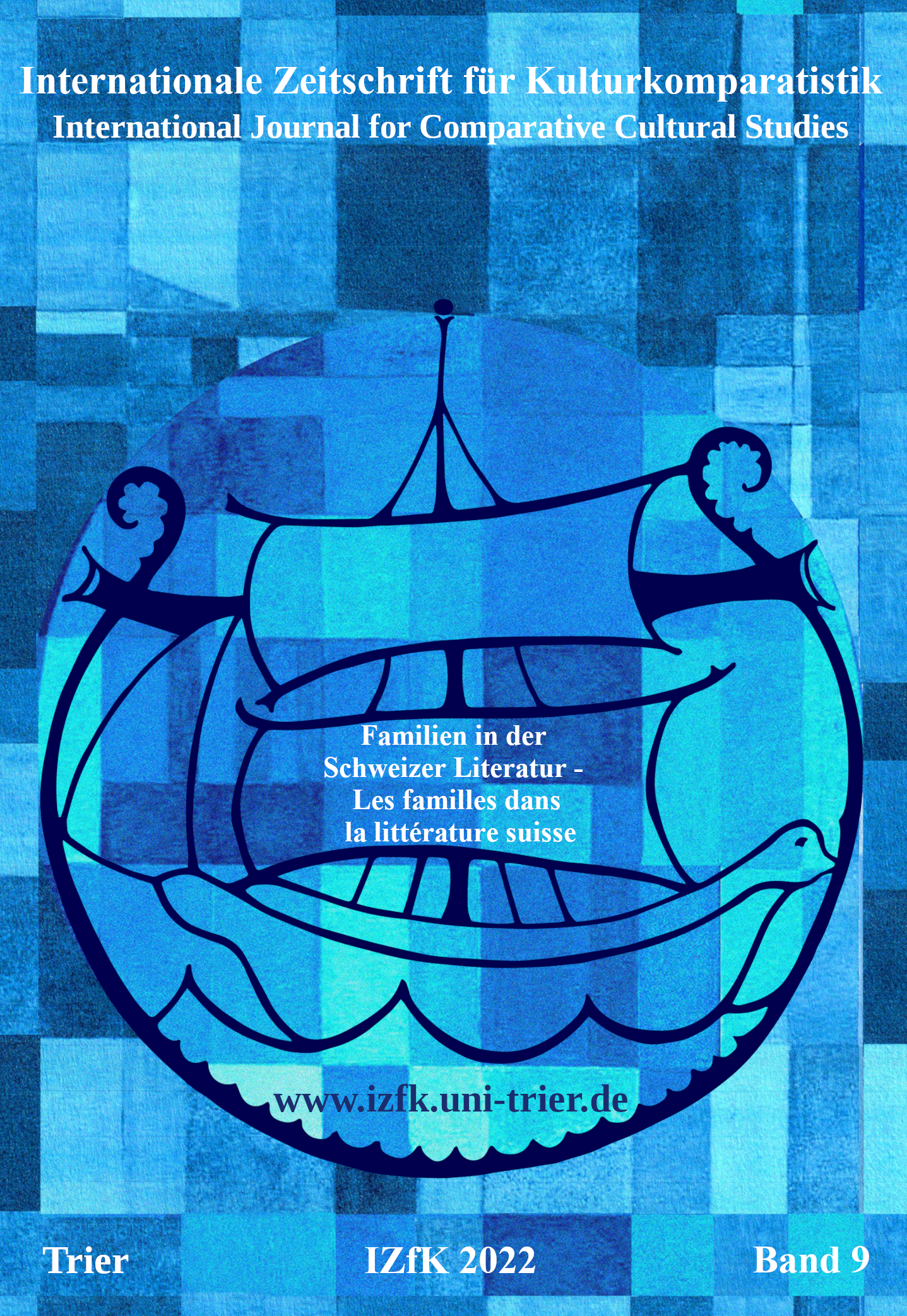„Immer wenn er gestorben war, kam er wieder zurück.“ Jüdische Lebenswelten und Erinnerungsräume in Charles Lewinskys „Melnitz“
Main Article Content
Abstract
The contribution is based on the hypothesis that Charles Lewinsky’s novel “Melnitz” should be read as the first literary cultural and social history of Swiss Jews after legal emancipation. On the one hand, it highlights the magical realist figure of Uncle Melnitz, a revenant eyewitness whose existence can be traced back to the violent persecution of Jews during the Cossack Khmelnytskyi Uprising in the 17th century, and who, following the pattern of Benjamin’s Angelus Novus, repeatedly comments on events from the perspective of the Jewish persecutees. Through Melnitz’s commentaries, the generational history of the Meijer family is presented simultaneously as Swiss history and as a collective Jewish history of memory. The identity of the Jews in Switzerland, which is perceived stereotypically as homogeneous from the outside, is in this way continuously renegotiated in the novel between adaptation and self-assurance, such that the demarcation between Jewish and non-Jewish cultures becomes increasingly blurred.

